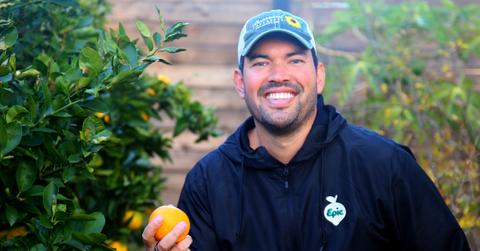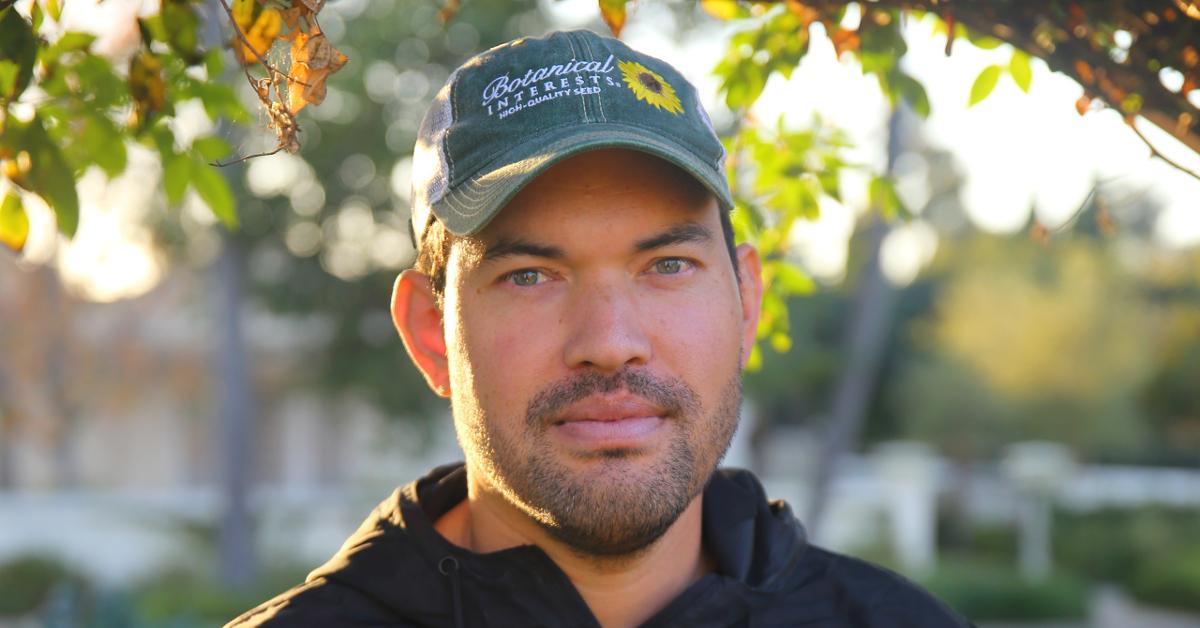Epic Gardening Founder on the Magic of Homesteading: "It’s to Become Just a Bit More Self-Sufficient" (Exclusive)
"The goal is just to get you going, and once you hit one target, you start on the next."
Published May 2 2024, 4:12 p.m. ET

Humans and their ancestors have lived off the land in some sense since their initial evolution. Almost all humans took on hunter-gatherer roles — a "subsistence lifestyle," as per National Geographic — starting about 2 million years ago (with Africa's early hominins) until about 12,000 years ago.
The Neolithic Revolution ultimately killed hunter-gatherer living, as humans settled into farming villages. This led to the Bronze Age and the Iron Age, which birthed new technologies and trade, as per History.
As per Psychology Today and New Food, we're seeing a possible transition into the Fifth Industrial Revolution and the Fourth Agricultural Revolution, respectively. While AI robots, "smart" technology, and biotechnology have led to a slew of positives, mass production, factory farming, and the transportation of goods have contributed to air, soil, and water pollution, waste, deforestation, and greenhouse gas emissions — not to mention the death of self-sufficiency.
However, modern homesteading is allowing people — including Epic Gardening CEO and founder Kevin Espiritu — to reconnect with the earth and reclaim independence.

Green Matters spoke exclusively with self-taught gardener, author, and homesteader Kevin Espiritu about his "epic urban homestead," the goals of homesteading, and how his sustainable self-sufficiency saves him money.
What is homesteading?
In the U.S., homesteading connects back to the Homesteading Act of 1862. This act allowed 270 million acres of public land to be distributed to private American citizens. To officially hold a 160-acre parcel of said land, citizens had to be at least 21 years old or the "head of a household" and pay a filing fee, as per the National Park Service. Acquiring this land came with much work, as homesteaders had to "live on the land, build a home, make improvements, and farm."
The Merriam-Webster definition that best fits modern homesteading calls it "the act or practice of living frugally or self-sufficiently (as on a homestead) especially by growing and preserving food."
Espiritu personally feels modern homesteading is about becoming "just a bit more self-sufficient, just a bit more of a producer than a consumer," he tells Green Matters exclusively via email. "This doesn’t mean you need to live off your land exclusively, only to decide on a target and work from there. Maybe you want to capture more rainwater, or put solar panels up and use less electricity from the grid, et cetera. This doesn’t necessarily need to be gardening; maybe you just want eggs."
The Field Guide to Urban Gardening author tells us that farming video games from his youth, like Stardew Valley, Harvest Moon, and SimFarm inspired him to prioritize self-sufficiency.
Espiritu's first video on his Epic Homesteading YouTube channel was posted on June 14, 2020, marking the start of his California-based modern homesteading journey.
Homesteading for beginners: Starting over stifling.
In 2022, Homesteaders of America found that aspiring homesteaders were apprehensive for two leading reasons: Finances and lack of space/land.
Espiritu didn't have that mentality, as he revealed in a February 2024 episode of Epic Gardening's podcast The Beet that he "mentally called" his former front yard urban garden a homestead.
"People just think, 'I can't get started because I live in an XYZ. I only have a balcony. I have a townhouse. I have no space,'" he says in the podcast episode. "I literally lived off my garden in that small front yard with some bartering, fishing, and foraging for a full month. And that was maybe a couple hundred square feet."
Espiritu's vision for modern homesteading in America is about evaluating the unique qualities, limitations, and advantages of your area and just getting started.
After getting a shed, Espiritu focused on energy, as San Diego is rich in sunlight. He swiftly purchased and installed solar panels on his house, knowing he'd make the money back, so to speak, after about five or six years.
Rome wasn't built in a day, and neither was Espiritu's epic homestead. His greywater systems, for example, were slowly added to his washing machine and both his indoor and outdoor showers over the course of years. Today, his suburban citrus orchard and artichoke patch thrive on greywater.
Lauren Miller of The Miller Acres also believes homesteading begins with where you are and what you have.
"You don’t even have to have a garden! The first thing that I canned was strawberry jam made from berries from Aldi!" she wrote. Learning to can, dehydrate, and pickle produce helped her cut down on waste and explore self-sufficiency.
Dozens of homesteading blogs tell aspiring homesteaders the same thing: Start small!
What is urban homesteading?
Though there's not one set urban homesteading definition, Carly MacQuarrie of The Little Green Shoot wrote that it typically involves "growing your own food, to whatever degree possible, in the city." The 2023 blog post also mentions scratch cooking, preserving harvests, and "[creating] clever space saving solutions."
Though Espiritu's "high-tech urban homestead" is in the city of San Diego, he's not cramped for space like apartment homesteaders. According to the official description for his 2024 book Epic Homesteading, Espiritu's urban homestead is located on "a modest urban lot."
We asked him how his homestead is both a sustainable and money-saving project.
"I capture 7,000 gallons of rainwater at a minimum per year. Almost all of the electricity is generated from the solar panels on the roof; sometimes there’s a bill, but it’s pretty rare," Espiritu tells us. "I grow all the produce I need unless it’s truly out of season. ... As I have 25 fruit trees, I rarely need to buy fruit. And I never buy eggs from the grocery store because the hens produce more than enough."
As for "how" to start urban homesteading, MacQuarrie maintained that "if you are already growing, cooking, and preserving your own food in the city or suburbs," you're doing it.
For people who don't know where to start, she recommended composting and setting up a worm bin, growing mushrooms (via an indoor growing kit) and herbs (she believes they're "one of the easiest things to grow"), and eventually learning to can and dehydrate food you've either grown yourself or foraged.
What are the best and worst U.S. states for homesteading?
According to World Population Review's 2024 data, Montana, North Dakota, Colorado, Nebraska, and Oklahoma are the states with the most homesteads. As of this writing, Montana comes out on top with 151,600 homesteads.
On the other end of the spectrum, Indiana-based homesteader Harold Thornbro of Redemption Permaculture at The Small Town Homestead believes that New Jersey, New York, Alaska, California, Connecticut, Nevada, and Hawaii are the worst U.S. states for homesteading, his reasons being poor climate, limiting local laws, land costs, and urbanization.
Educational blogs, books, and shows to help you become a knowledgable modern homesteader.
Find homesteading inspiration and sustainable, slow living knowledge via these ...
Blogs/Brands:
- Epic Gardening
- The Miller Acres
- The Little Green Shoot
- Redemption Permaculture at The Small Town Homestead
- The Prairie Homestead
- On The Homestead
Books:
Shows: